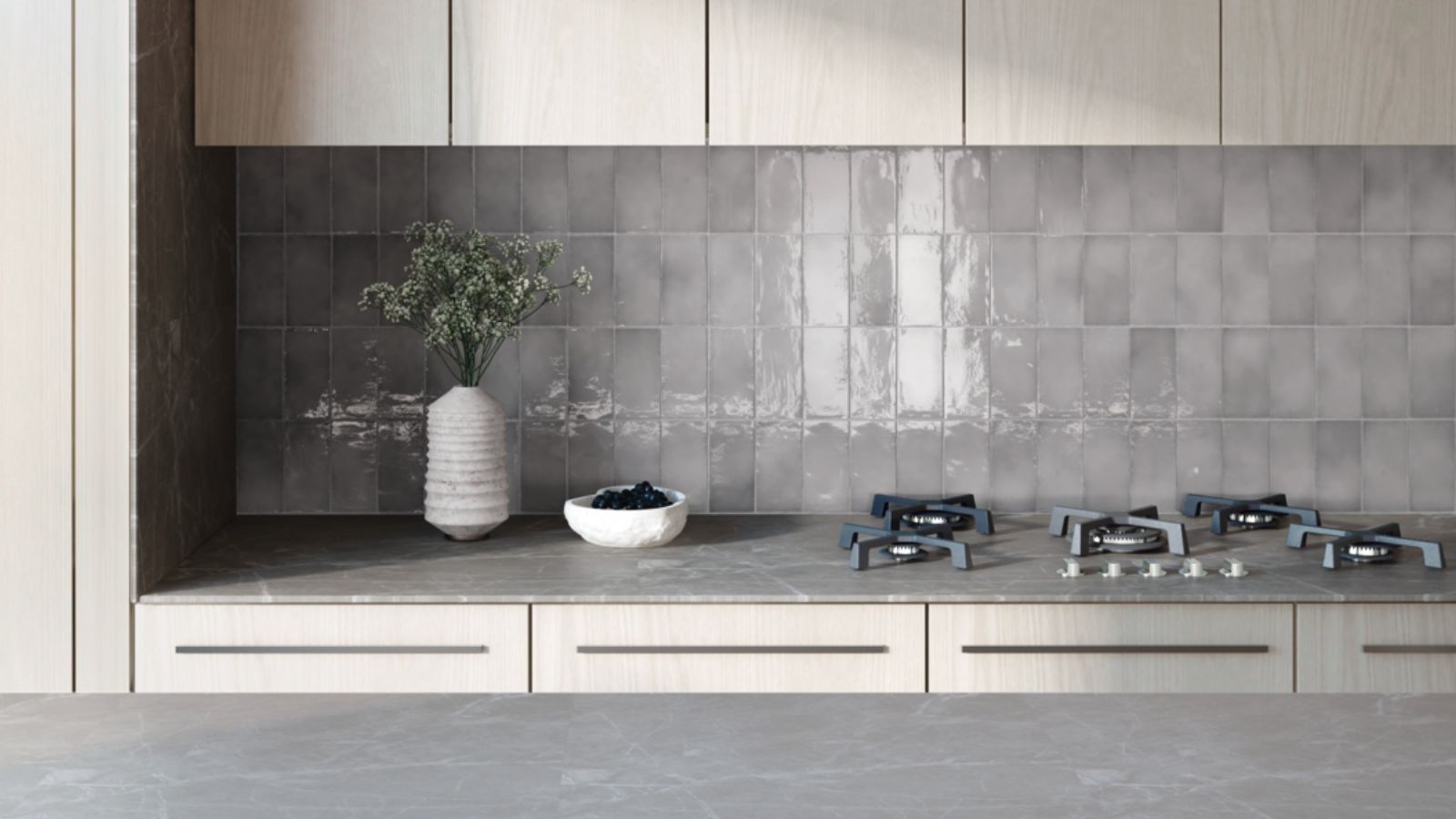
We are constantly amazed by the uses of vinegar in our homes, and getting rid of bad smells is just one of many ways white vinegar is a home savior in our books.
While home cooking can make a home smell incredible, some foods (like fish) are simply unpleasant to have lingering around for days on end. In a quest to make a home smell nice, vinegar can be used to neutralize even the toughest of bad odors and make way for fresher home fragrances – and you don't even have to clean your kitchen with it for it to work.
Below, we explain why a bowl of vinegar next to your stove is a simple way to neutralize kitchen odors.
Why you should keep a bowl of vinegar next to your stove
When we recommend keeping a bowl of vinegar next to your stove, we aren't suggesting you use it to whip up a quick salad dressing (although, if you haven't tried the salad dressing cleaning hack, you should). The main reason you should keep a bowl of vinegar on the side is to help neutralize and get rid of bad cooking odors when they arise.
How to use vinegar to neutralize kitchen smells

There are a few ways you can use distilled white vinegar to get rid of smells, but the easiest is to place a small bowl right beside the stove – it really involves no effort at all. 'Leave a bowl of vinegar out overnight,’ advises Saskia Gregson-Williams, Founder of Naturally Sassy. ‘In the morning, the vinegar will have absorbed all the unsavory smells, and your kitchen will be as fresh as a daisy.’
When using this method, you may have to change the vinegar every few days to maintain its effectiveness. So, it may cost you more over the long run than only treating smells that aren’t dissipating on their own.
Why does it work?
White vinegar is made of acetic acid which perfectly neutralizes the alkaline scents that we call 'bad' odors. You can also add white vinegar to laundry to help deodorize clothes or use it to mask trash can smells.
Does vinegar work for all kitchen odors?

Despite being a useful hack for everyday cooking, some acrid odors, such as burnt food smells, can be harder to get rid of in kitchens, and your little bowl of vinegar may not be able to handle the task alone.
‘Give your kitchen a steamy makeover by boiling a pot of water mixed with equal parts vinegar,’ Saskia advises. ‘The steam will lift away any pesky cooking smells that have been hanging around.’
If the smell in your kitchen persists, then a little bit of elbow grease may be required. ‘Fill a spray bottle with two cups of water and one to two teaspoons of vinegar and spritz it around the kitchen – it's like a breath of fresh air in a bottle!’
While you can spray undiluted vinegar around the kitchen for particularly potent smells, this may just replace one scent with the pungent essence of vinegar, so adding some water (or even an essential oil) can make it a little less potent. Alternatively, you may want to purchase a scented cleaning vinegar, such as this lavender-scented vinegar from Walmart.
The good news is this will also help clean a kitchen at the same time – just make sure to check which things you can clean with vinegar first to prevent causing any damage to paintwork or surfaces.
‘Remember also to keep any windows and external doors open to allow fresh air to circulate and dissipate any odors, especially when cooking pungent foods,’ Saskia adds.
FAQs
How long will a bowl of vinegar absorb odors for?
You can leave a bowl of vinegar out in the kitchen for several hours and it will help to get rid of smells. As social media-famous cleaning expert Babs explains, if you're preparing a meal, particularly fish or curry that releases strong smells that you don't want getting into the fibers of your couch, for instance, then pouring a bowl of distilled white vinegar from when you start cooking will help absorb odors.
Leave it overnight. If you can still smell the odors in the morning, she recommends boiling some lemon slices in a DIY simmer pot. If the smells persist, try replacing the bowl more frequently.
Does heating vinegar make it clean better?
White distilled vinegar is not only a cooking staple but is one of the most commonly used, natural cleaning products out there. It will disinfect surfaces, from your kitchen countertop and appliances to bathroom tiles. It will also help to get rid of mold, simply apply with a spray bottle and microfiber cloth, at Amazon.
Some oven cleaning hacks suggest that heating vinegar and creating steam will make it remove burnt-on stains, and grease more easily. The same goes for cleaning your microwave or hard water spots on your shower screen. But, as we mentioned, it's safer to do so when it has been diluted with water. We'd recommend mixing equal parts vinegar and water to be on the safe side. After all, although it's natural, we're still dealing with a strong acid.
Why does white vinegar remove odors?
White vinegar is primarily made up of acetic acid, a compound that reacts with and neutralizes alkaline smells that we recognize as bad odors. When used as either a spray to clean down surfaces, or put in bowls around a smelly space, the vinegar absorbs the smell over time
Does boiling vinegar get rid of smoke smell?
If you have recently moved house and are struggling to shift the smell of smoke left by the previous owners, vinegar may an easy and cost-effective solution. Boiling vinegar can help to get rid of the lingering smell.
Just make sure to dilute it with water first to prevent pure evaporated acid from burning your eyes and throat. An alternative way to deal with the smoke smell is to leave bowls of vinegar sitting around the space to absorb the smell over several days. It also helps to wipe down surfaces such as doors, tables, and walls with vinegar to help remove the smell more quickly.
It goes without saying, but you should always try to identify where smells are coming from in your kitchen. Bad odors may not be coming from your stove. For example, if it's the kitchen trash can, you can sprinkle baking soda, which is a powerful deodorizer. Otherwise, try cleaning kitchen surfaces, from the floors to the upholstery.







